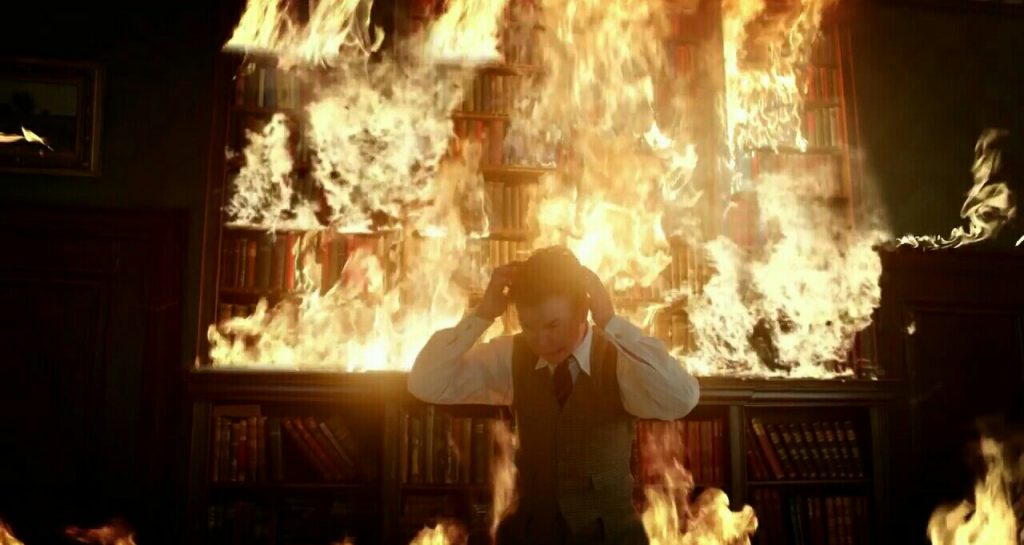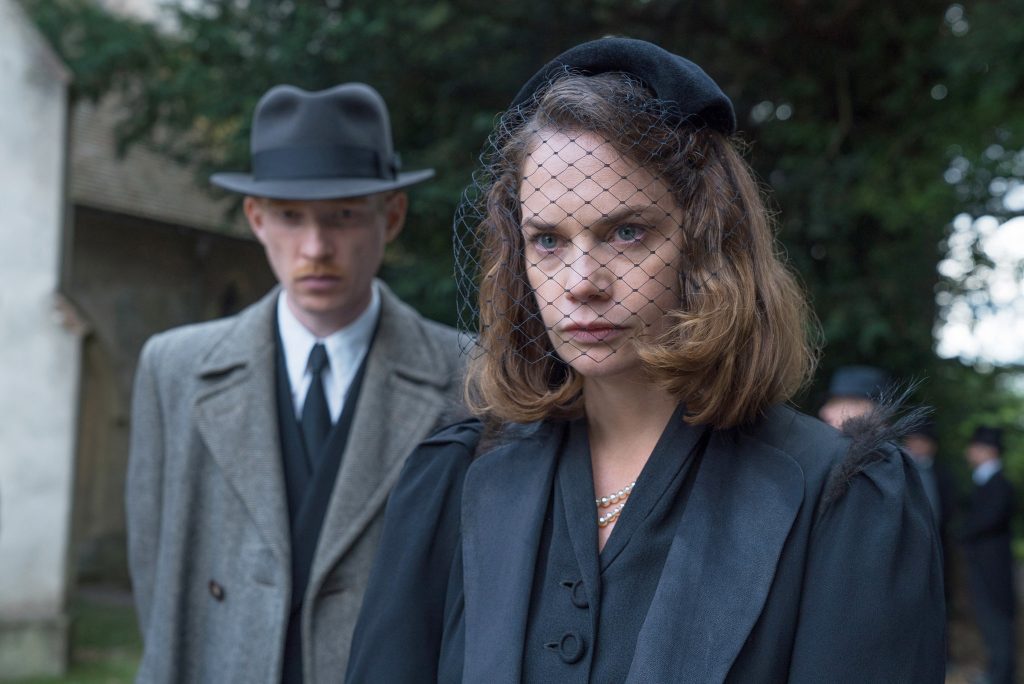
When reports surfaced saying that the production company Focus Features was cancelling screenings of The Little Stranger, it would have been safe to bet that the haunted-house horror was dead on arrival. This, combined with its avoidance of the film festival circuit, made for a flaming red flag. But this, if anything, was an overreaction, especially when its only competition in the box-office is the pungent Happytime Murders. Based on a 2009 gothic novel of the same name,The Little Stranger is a slow-contorting, lackluster end to a summer booming with breakneck blockbusters.
Hundreds Hall, a dilapidated manor in 1940s Warwickshire, England, is Stranger’s primary setting, and if you’re even a moderate watcher of film or television you’ve most certainly seen plenty like it in shows like Scooby-Doo or Downtown Abbey. Once viewed as an aristocratic Mount Olympus, the decaying shell of grandeur works as a metaphor for its own inhabitance, the dysfunctional Ayers family, who can’t seem to adapt to the post-war upheaval of class distinctions.
In walks Doctor Faraday (Domnhall Gleeson), whose late mother once worked for the Ayers as a maid. Initially there to treat a sickly servant (Liv Hill), Faraday quickly realizes that this maid suffers from the depression and anxiety that comes with being the lone servant in this expansive pile of bricks. His attempt to heal all the inhabitance of the house becomes a snare that pulls him deeper into their family drama.

While it’d be easy to compare The Little Stranger to this year’s Hereditary, a fellow family-centered horror, there’s a good chance you may walk out of the theatre convinced that this film is no more supernatural than Paul Thomas Anderson’s Phantom Thread. Stranger walks the line of the explainable and unexplainable, and it’s never really clear whether or not there’s even a ghost at all. While we never see her phantasmal form, the best guess as to who or what is haunting Hundreds Hall would probably be Suki Ayers, the deceased daughter of Angela Ayers (Charlotte Rampling) who’s only seen alive in the nostalgic, sunlit flashbacks of Faraday. Her still-remorseful mother continues to dwell there, along with her grown up siblings Caroline Ayers (Ruth Wilson), a poignant, unmarried sack of sadness, and Roderick Ayers (Will Poultry), who’s left physically disfigured and mentally fractured by the last World War.
Fortunately, Lenny Abrahamson spares viewers of cheap jump-scares, and, like Hereditary, instead chooses to put said viewer through a slow crescendo of dread. Abrahamson is very much interested in the spaces that he navigates. Even though he’s given a more expansive canvas compared to his previous film, Room, which was nominated for four Academy Awards, he’s able to duplicate the same sense of claustrophobia in The Little Stranger. Credit must also be given to the film’s sound designers, who, in the quietest moments, make Hundreds Hall sound as though its breathing and writhing. This, combined with Ole Bratt Birkelands ominous cinematography, gives the decrepit mansion a life of its own.
To a fault, anything that could be considered nightmarish doesn’t come out until the final third of the film. The other two thirds were, simply put, spiritless. I had to hold back a laugh when the person behind me whispered “Finally!” This may be partly because of the fact that we, and even the characters, know the root of the problem quit early on in the film, but not a single character seems to really do anything about it.
While The Little Stranger presents itself as a puzzle, this slow-burn haunting doesn’t cauterize any of the wounds it lays bare. While striking and provocative, the ending may raise more questions about Hundreds Hall than it answered. If you despise stories that are open to interpretation through very (very) loose ends, I recommend you sit this one out.
 Akil Anderson is an English major minoring in History who’s working towards a Film Studies Certificate
Akil Anderson is an English major minoring in History who’s working towards a Film Studies Certificate
